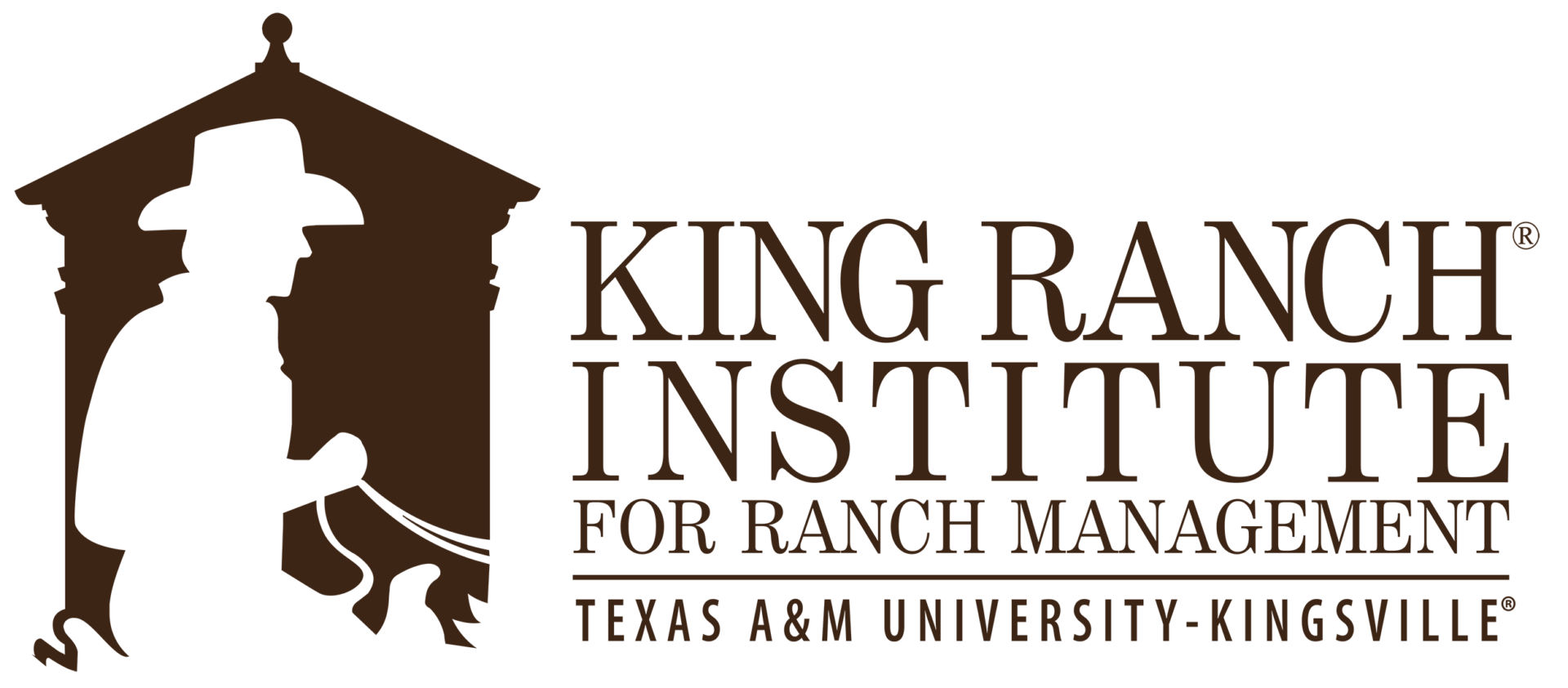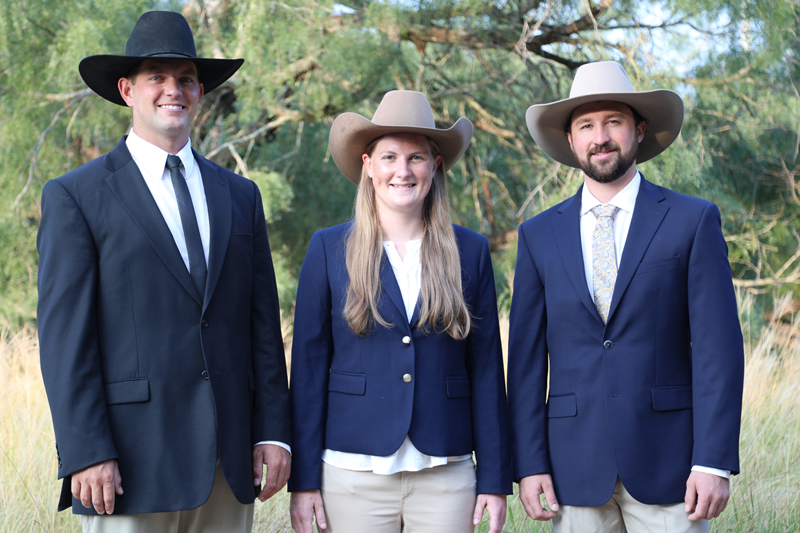King Ranch® Institute for Ranch Management Class of 2023 embarks on their graduate school journey
By Kindra Gordon, published in the KRIRM Fall 2021 Newsletter
Three students with a passion for the cattle industry are starting their trailblazing journey with the King Ranch® Institute for Ranch Management (KRIRM) this fall. Representing the future class of 2023 are Caroline Wild, Belgrade, MT; Bradley Donner, Fort Collins, CO; and Tyler Woodland, Paradise Valley, NV.
Each of them has pursued paths working within ranching and the cattle sector and look forward to the diverse cross-training the KRIRM program offers. Here, they share more about their backgrounds.
Caroline Wild
Wild grew up in Brunswick, Maine, where her parents operated a custom remodeling company. But in spite of not being raised on a farm, Wild had an innate interest in cattle. She recalls attending local county fairs and imagining herself owning her own herd. As a high school junior she joined a beef-focused 4-H club and raised a Belted Galloway steer during her last year of high school. “I haven’t looked back since,” she says.
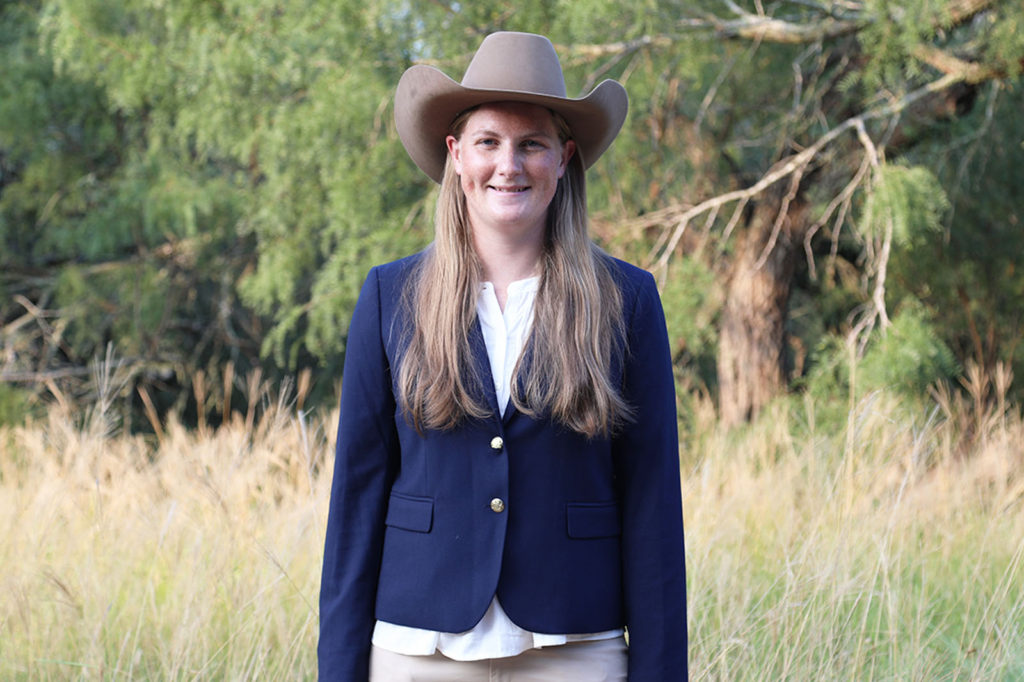
After one year of college in Massachusetts, she spent a year working for Wolfe’s Neck Farm, helping manage their beef herd, working with interns and assisting with haying. In fall 2014, Wild took the next step toward her beef-focused future and moved to Bozeman, Montana, to attend Montana State University (MSU) and earn a degree in Animal Science with a concentration in livestock management and industry.
As a result of that experience, Wild says, “The classes I took and friends I made at MSU helped me create connections in the agriculture industry, and branch out into the ranching world.” Since graduating, she has worked as the DNA Director at the American Simmental Association, the Assistant Manager at Headwaters Livestock Auction, as well as worked on several ranches throughout Montana.
When she turned her goals toward graduate school, Wild was excited to find the KRIRM program because of its emphasis on a systems approach to managing a ranch, and combination of classes in animal and range science, as well as business and management. “I have experience in many different aspects of ranching, but really am looking forward to combining those skills so I have a more encompassing view,” she shares.
Wild adds, “Ranching is so complex, with managers required to be knowledgeable in many areas. It’s important to be able to balance all those areas to be successful.”
Wild and her 7-year-old rescue dog Moxie have relocated from Montana to Kingsville, Texas. Having grown up near the ocean in Maine, Wild says she is excited to be near the water again at Kingsville. Wild’s hobbies includ hiking, yoga, exploring new places, and reading.
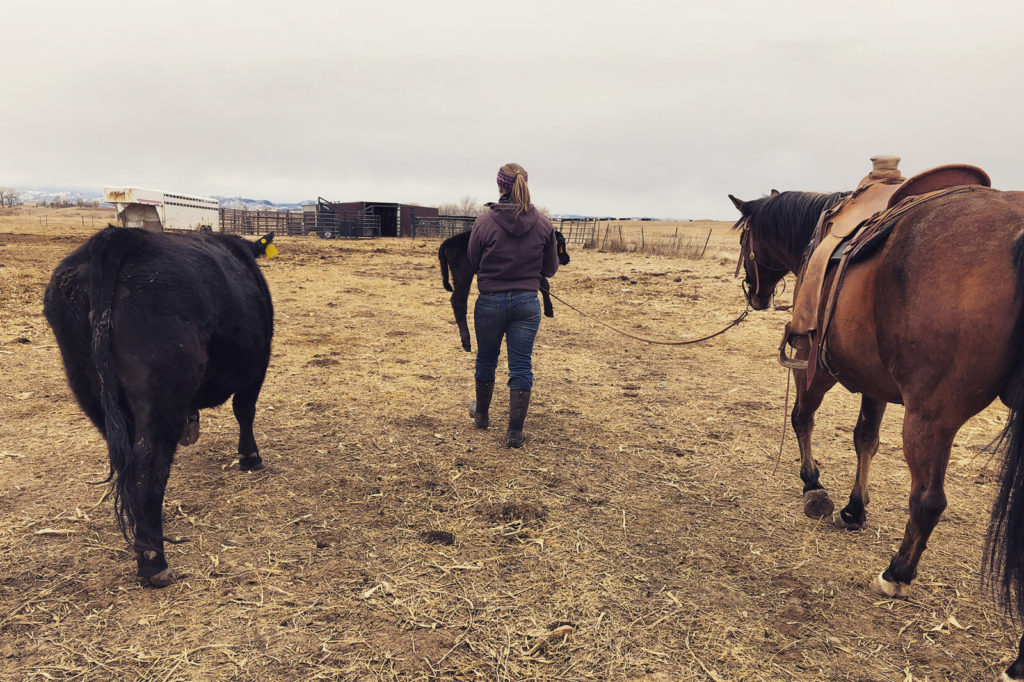
As she starts the KRIRM program and looks toward her future, Wild says, “I am really excited to be able to help others with managing land, animals, and people, whether that is through a traditional ranch manager position, or a different type of role.”
Tyler Woodland
Raised on a ranch in central Nevada near Battle Mountain, Woodland grew up with farming roots on both his mom and dad’s sides of the family. He moved with his family to LaBarge, Wyoming, as a high school sophomore. Woodland attended Brigham Young University majoring in ag business, and has worked on ranches in Wyoming, Nebraska, Nevada, and Montana. Most recently, Woodland and his wife have enjoyed working in Paradise Valley, Nevada, for the past two years for Crawford Cattle, a 1.6 million-acre ranch with approximately 6,500 head of cattle.
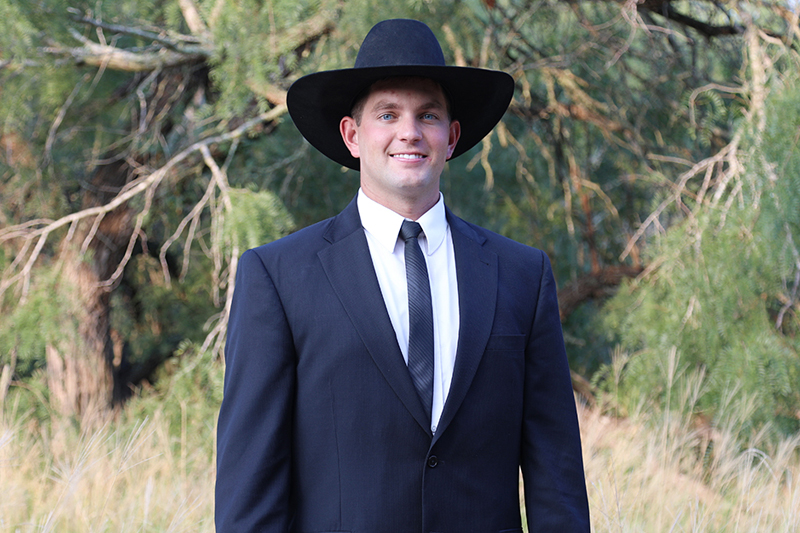
Looking to further his understanding of ranch management sparked Woodland’s interest in the KRIRM graduate program. A KRIRM alumnus, Tyler Gardner, encouraged him to apply.
Woodland, his wife, and their nine-month-old son have relocated to Kingsville, Texas, and Woodland is eager for the networking opportunities KRIRM offers, as well as improving his skills toward managing people and leadership within the agricultural industry. He enjoys cattle management and horse training.
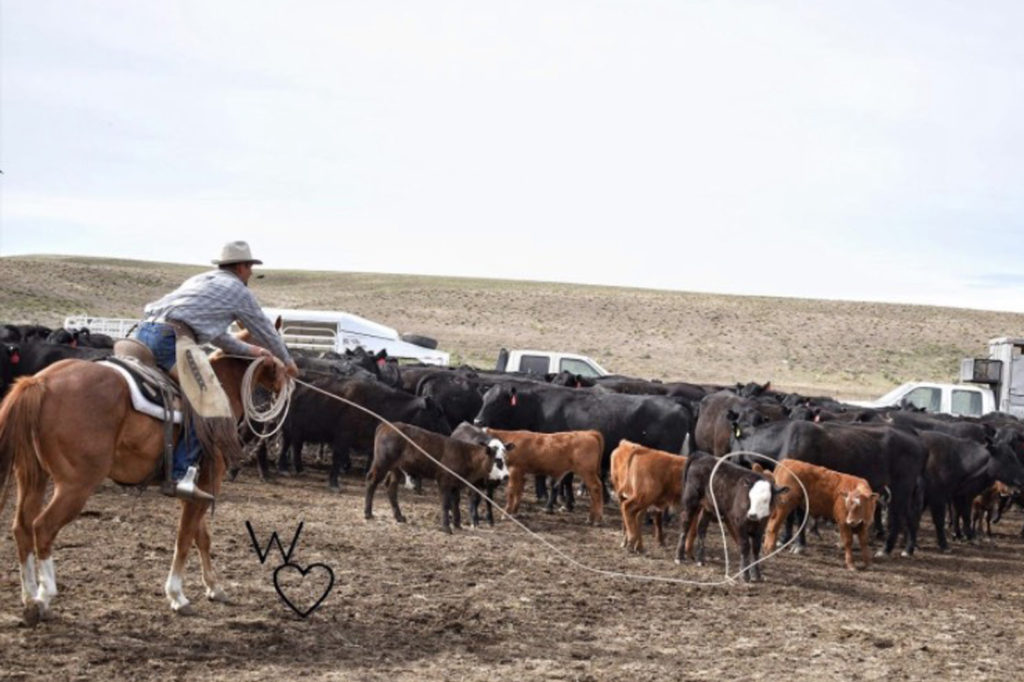
Woodland says the best advice he’s ever received is to recognize “there are tradeoffs to everything in life.” And, the advice he is most known to share with others is: “It’s hard telling, not knowing.”
Thus, he’s focused on learning and broadening his skills through the KRIRM program.
Bradley Donner
A native of northern Colorado, Donner says he recognized his passion for agriculture at an early age. He earned a Bachelor of Science in Agricultural Business with a focus on Ranch Management and explored a broad spectrum of topics including animal and range sciences, business economics, environmental sciences, and various aspects of the multifaceted grain industry.
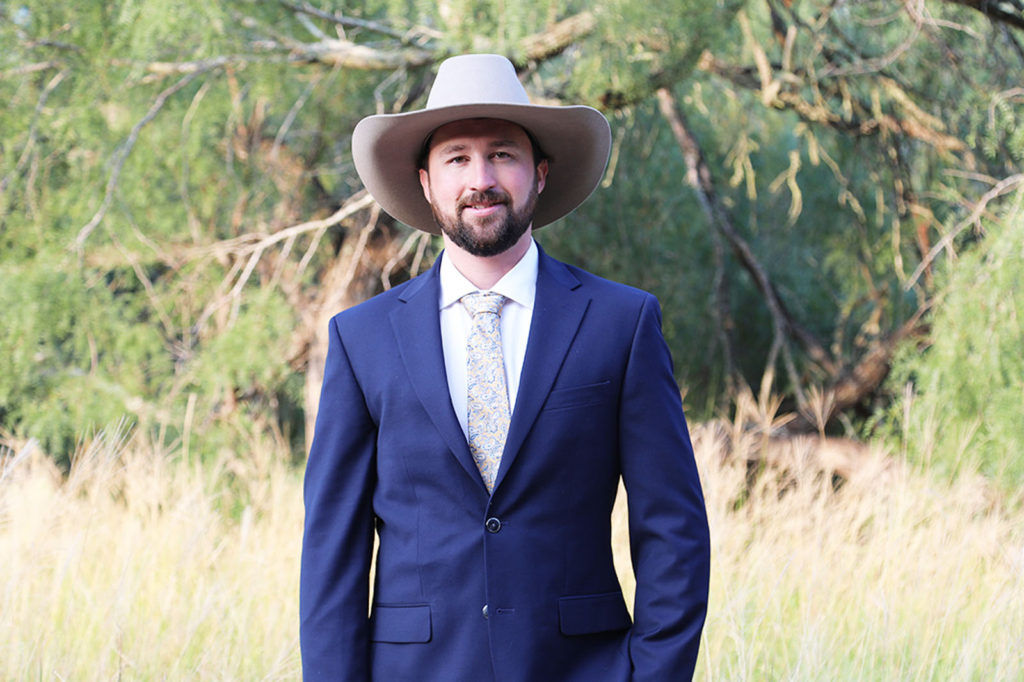
Donner notes, “I enjoy the ranching industry’s intertwined relationship between the soil, the plants, the animals, and finances. I believe a great range of knowledge is necessary in a wide array of areas in agricultural production to be highly successful, and I have a desire to educate myself in all of these areas.”
His previous experiences included working for a grain industry leader and working with multiple ranches in several Western states, including being a unit manager and sole location employee on a first-year, 40,000-acre commercial cattle operation. Donner focused on developing a dynamic, rest-rotation grazing plan to allow for stocking grass for drought years and winter forage as well as reducing animal stress and human labor. “I worked in pursuit of optimizing ranch profits through increases in efficiency of inputs while balancing the available resources,” he explains.
A former KRIRM alumnus knew Donner’s passion for ranching and his interest in improving operational efficiency and continuing education, so they encouraged him to pursue his graduate degree at KRIRM.
Of the program, Donner says, “The KRIRM program brings together thought leaders from various disciplines, and I look forward to learning from their experiences and research in order to bring this knowledge into practice in my career. I look forward to learning, in more depth, the intricacies of the agricultural supply chain to better understand how to best maximize sustainable profits, minimize inputs, maximize outputs and be more knowledgeable of the various bottlenecks and how to mitigate them.”
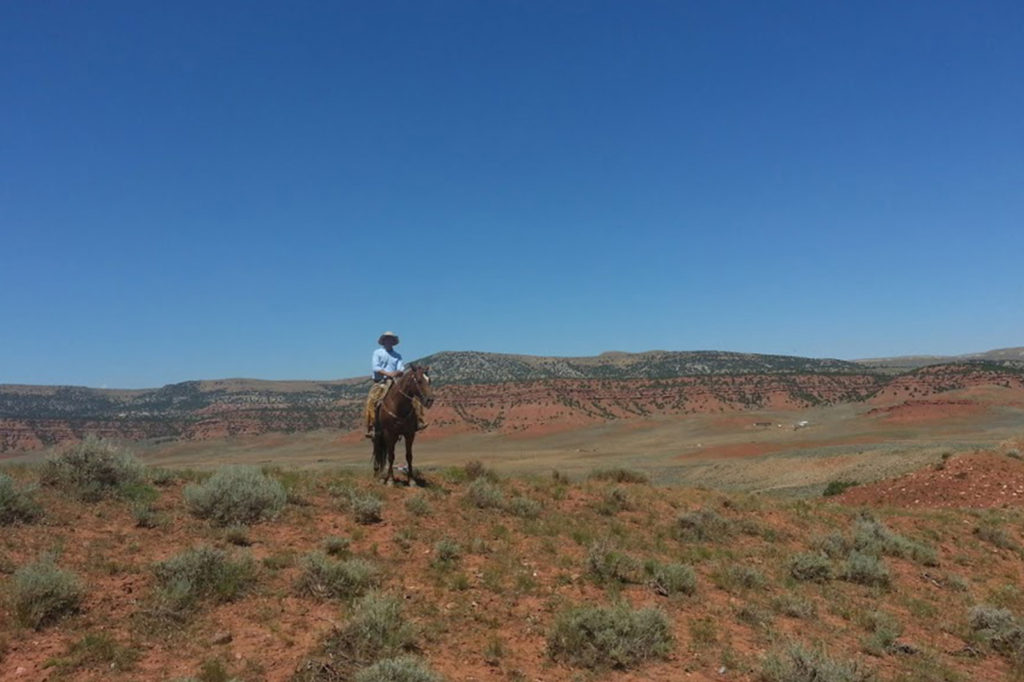
Donner says his future career focus is to seek out a pivotal role on a dynamic, diversified, and passionate ranching/farming enterprise where he can apply his skills and knowledge while at the same time learn from their established operations and talent. Ultimately, he sees ranching for the future as a balance between the roots of traditional ranching while adopting the innovations, tools and practices which have the potential to better the ranching community, the land, animals and environment.
Donner’s hobbies include fly fishing, woodworking, and the cowboy crafts, and he gives credence to the mantra: “Never be complacent and always continue to learn.” He plans to join his fellow classmates in doing just that at KRIRM.
What industry challenges does this trio see?
As they represent the future of the ranching industry, we asked this trio of students what challenges they are concerned about for the ranching and the livestock industries – and what solutions they suggest?
Tyler Woodland counts the volatility in cattle prices as one of the challenges he has seen impact the ranching and livestock industry firsthand, and acknowledges, “This is a very complex problem to address.” He recognizes that lowering input and overhead costs are always important tactics to help combat volatile prices and margins.
Bradley Donner points to the climatic and political pressures as top challenges facing the future of the livestock industry. To this he suggests, “Producers, consumers and activists alike can help solve these challenges through continued education and constructive dialogue. We need to be aware of the positive and negative impacts our industry can have and do our best to minimize the negative aspects while leveraging and emphasizing the benefits of responsible ranching and rangeland practices.”
Caroline Wild sees one of the biggest problems currently facing the ranching industry being the changing circumstances – and the continual need to adapt. She explains, “Whether that be different consumer demands, changing environmental factors or new methods of raising cattle, I think one of the best ways to address this is to offer continuing education opportunities much like KRIRM does so that ranchers can stay up to date with new developments.”
Download the full KRIRM Fall 2021 Newsletter Issue featuring this story.
